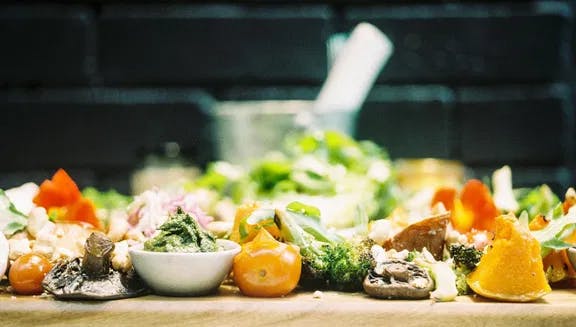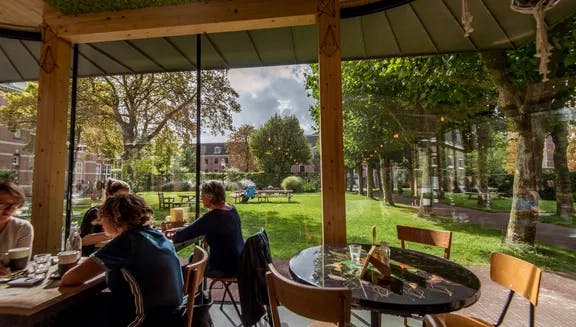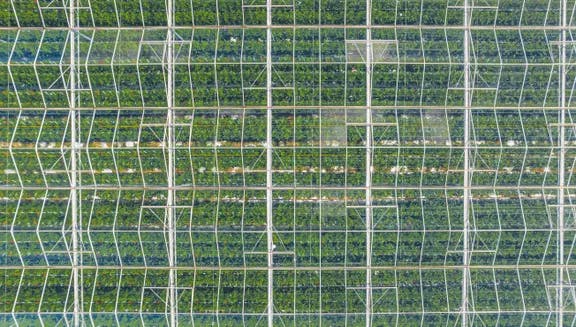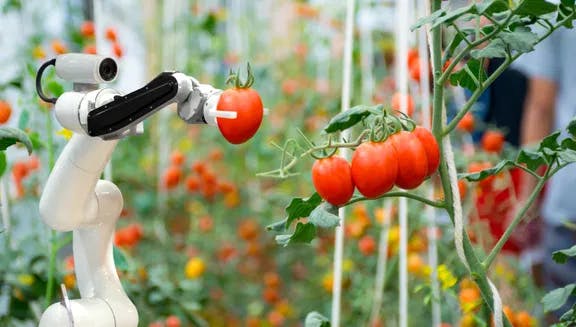
Meet the companies driving the protein transition in Amsterdam
Transforming our relationship with food
Amsterdam, known for its diverse food cultures and upcoming food scene, is at the forefront of a significant movement: the protein transition. This transition represents a shift towards more sustainable and plant-based eating, driven by a desire to address the challenges of food security and environmental sustainability.
At the heart of this movement are individuals and companies dedicated to reimagining our relationship with food and pioneering new approaches to nourishment. On top of that the city of Amsterdam has the goal of 60% plant-based for its citizen's diet by 2030, and the city was recently one of the first to sign The Plant-Based Treaty.
Diverse food culture and innovation
Lotte Sluiter, program manager of PlantFWD, and Tom van Duijn, co-founder of PlantFWD, shed light on diverse forward-thinking enterprises and the culture shaping the global food transition. Lotte highlights the vibrant food culture in Amsterdam as fertile ground for this movement.
The city is a melting pot of culinary creativity, reflecting a willingness to embrace new tastes and experiences. This openness lays the foundation for exploring innovative protein sources and culinary techniques that challenge traditional norms.
The protein transition is not just about food; it's about our collective future, Lotte mentions. By diversifying protein sources and reducing reliance on animal agriculture, we can mitigate environmental degradation, conserve natural resources, and promote food security.
Moreover, embracing plant-forward living offers significant health benefits and culinary opportunities. As Lotte emphasises, this transition challenges us to reconsider our relationship with animals and the planet, paving the way for a more compassionate and sustainable future.
Growing plant-based options together
According to Tom from Plant FWD, collaboration is key as we embark on this journey towards a plant-forward future. Businesses play a vital role in driving this transition by investing in research and development, collaborating with partners across industries, and educating consumers about the benefits of sustainable living. By working together towards common goals of health, sustainability, and innovation, we can create a more resilient future for all.
Amsterdam-based companies pushing the protein transition
Amsterdam emerges as a hotspot for companies driving the protein transition, with each endeavour contributing to a more sustainable and ethical future. As consumers increasingly seek plant-based options, these Amsterdam-based innovators are changing the food game. Here is Lotte and Tom’s list of trailblazers:
1. Yemayá's - Celebrated for their vegan soul food, Yemayá's taps into existing food cultures to create flavorful plant-based dishes.
2. Choux - Known for their innovative approach to vegetable preparation, Choux continually explores new ways to elevate plant-based cuisine.
3. SAINT-JEAN - Renowned for its tasty plant-based patisserie, SAINT-JEAN proves that plant-based doesn't mean compromising on taste.
4. Willicroft - This plant-based cheese producer not only offers delicious alternatives but also collaborates with local farmers to promote regenerative agriculture.
5. Wheat Pray Love - Specialising in seitan rendangs based on Indonesian family recipes, Wheat Pray Love showcases the culinary diversity of plant-based cuisine.
6. Farmless - A pioneering tech start-up, Farmless is revolutionising fermentation processes to create versatile plant-based proteins.
7. Karma Kebab - Locally produced, super sustainable and super tasty kebab based on celeriac.
8. IJsbaart - on a mission to inspire better choices, they make ice cream without the cows, skipping the additives and other nonsense, just plant-based creamy ice cream in surprising flavours.
9. Snack with benefits - 100% plant-based, made from locally sourced veg, less waste, more taste - think funghi, corn and cauliflower as the main ingredients.
10. ON!ST - is on a mission to disrupt the pet food industry. They are focusing on restoring biodiversity by being 100% plant-based and using native and fresh ingredients.
Related articles

Why are the Dutch eating so many meat substitutes?

Top tips from the Amsterdam companies leading the fight against food waste

Feeding the community: Amsterdam food companies driving social change

Key facts and figures on Amsterdam’s food sector

Feeding the future: Amsterdam's role in the global food transition

Amsterdam’s change champions: Meet Rodney Nikkels

How Cargill is reimagining the future of food

Amsterdam becomes home to MotherDuck's European operations

Vertical farming company Growy is on a mission to feed the world

